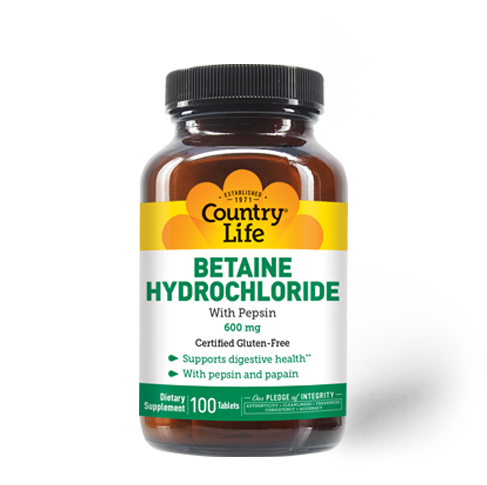The Ultimate Guide to Choosing the Best Gut Health Supplement for Your Needs
The Ultimate Guide to Choosing the Best Gut Health Supplement for Your Needs
Blog Article
Discover the Trick to Food Digestion and Resistance With Gut Wellness Support

Recognizing Digestive Tract Wellness
Comprehending gut wellness is crucial for overall well-being, as it plays a significant role in food digestion, resistance, and even mental health. The gut, consisting of the intestinal tract, is accountable for breaking down food, soaking up nutrients, and removing waste. A balanced digestive tract atmosphere guarantees effective food digestion, enabling the body to use nutrients successfully.
In addition, intestine health dramatically affects the body immune system. The gut houses a significant part of the body's immune cells, and a healthy and balanced gut can assist ward off virus and minimize swelling. Interruptions in gut health can cause an over active immune reaction, possibly adding to autoimmune problems and allergic reactions.
Furthermore, the digestive tract is often referred to as the "2nd mind" because of the gut-brain axis, a complicated interaction network linking the mind and the digestive tract. This link influences mood, cognition, and psychological health. Issues such as dysbiosis, identified by a discrepancy in intestine microorganisms, have actually been related to mental health and wellness conditions, including anxiousness and anxiety.
The Intestine Microbiome Explained

The intestine microbiome, a varied community of microbes staying in the intestinal system, plays a critical function in preserving digestive wellness and general wellness. Making up trillions of microorganisms, infections, fungis, and other germs, this complicated environment aids in the food digestion of food, the synthesis of necessary nutrients, and the guideline of metabolic procedures.
Each individual's gut microbiome is one-of-a-kind, affected by factors such as diet regimen, lifestyle, genetics, and ecological exposures. A well balanced microbiome sustains ideal food digestion by damaging down facility carbohydrates, producing short-chain fats, and helping with the absorption of nutrients. Conversely, an imbalance, often referred to as dysbiosis, can cause gastrointestinal conditions, consisting of short-tempered digestive tract disorder (IBS) and inflammatory digestive tract condition (IBD)
Research study has shown that a diverse microbiome is associated with far better health and wellness outcomes, underscoring the value of dietary options in nurturing these bacteria. Foods abundant in fiber, probiotics, and prebiotics, such as fruits, vegetables, and fermented products, can promote a healthy and balanced microbiome. Recognizing the digestive tract microbiome is important for creating targeted interventions aimed at boosting digestion health and wellness and preventing gastrointestinal conditions.

Link In Between Digestion and Immunity
A durable connection exists in between digestion why not find out more and resistance, highlighting the vital duty of the digestive tract in maintaining overall health and wellness. The gastrointestinal tract is home to trillions of microbes that create the gut microbiome, which significantly influences both gastrointestinal processes and immune actions. This facility ecological community aids in damaging down food, taking in nutrients, and supplying necessary metabolites that sustain immune feature.
When food digestion is reliable, the intestine obstacle stays intact, avoiding hazardous virus from getting in the bloodstream. Approximately 70% of the immune system stays in the gut-associated lymphoid tissue (GALT), which interacts very closely with the gut microbiome.
Tips for Sustaining Digestive Tract Health
Sustaining intestine health is vital for preserving both digestive system performance and a well-functioning body immune system. To foster optimal gut wellness, think about incorporating a number of sensible strategies into your daily routine.
First, focus on hydration. Consuming sufficient water supports food digestion and aids keep the mucosal lining of the intestinal tracts. Furthermore, routine physical activity can improve gut motility and promote a varied microbiome.
Conscious eating practices are also important. Eating food completely and consuming gradually can aid about his food digestion and avoid over-eating, which might worry the intestine. Taking care of stress and anxiety through strategies such as meditation, yoga exercise, or deep-breathing workouts can positively influence intestine wellness, as stress is known to interrupt digestion procedures.
Integrating prebiotics and probiotics right into your regimen is another effective method. While particular foods will be talked about later, comprehending the value of these parts is critical. Prebiotics act as food for beneficial gut bacteria, while probiotics present real-time valuable microorganisms.
Lastly, stay clear of too much use of prescription antibiotics, as they can disrupt the balance of gut vegetation. By adhering to these ideas, you can dramatically add to the maintenance of a healthy intestine, which is vital for overall wellness and vitality.
Foods That Promote Intestine Wellness

Fermented foods, such as yogurt, sauerkraut, kimchi, and kefir, are abundant in probiotics, which are valuable microorganisms that sustain digestive tract plants and improve food digestion. These foods can aid bring back balance in the gut, particularly after antibiotic usage or digestive system disruptions.
Along with fermented options, prebiotic foods, such as garlic, onions, asparagus, and bananas, function as sustenance for these probiotics, promoting their growth and task. These soluble fibers support intestine mobility and can minimize issues like constipation.
In addition, integrating high-fiber foods, including entire grains, vegetables, vegetables, and fruits, is necessary for maintaining a healthy and balanced gut. Fiber help in routine defecation and aids stop gastrointestinal problems.
Finally, omega-3 fats discovered in fatty fish, flaxseeds, and walnuts have anti-inflammatory properties that can additionally support digestive tract wellness. Highlighting these foods in your diet regimen can result in a durable digestive system and improved immune feature.
Final Thought
In conclusion, focusing on digestive tract health and wellness is crucial for optimizing digestion and enhancing immunity. A balanced gut microbiome, influenced by dietary choices and way of life elements, plays a vital duty in nutrient absorption and swelling decrease.
Comprehending gut health and wellness is critical for total health, as it plays a substantial duty in food digestion, immunity, and even mental health. The digestive tract houses a substantial portion of the body's immune cells, and a healthy intestine can aid fend off microorganisms and minimize inflammation.Additionally, the intestine is usually referred to as the "2nd brain" due to the gut-brain axis, a complex communication network connecting the brain and the gut.A durable link exists between food digestion and resistance, highlighting the important role of the intestine in preserving general health.In verdict, focusing on digestive tract health is crucial for enhancing digestion and boosting immunity.
Report this page